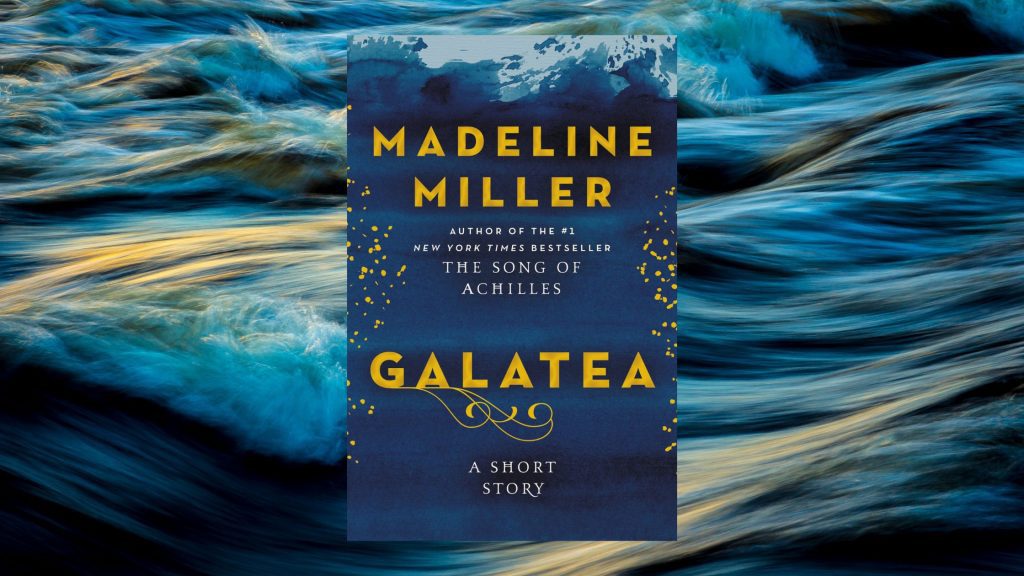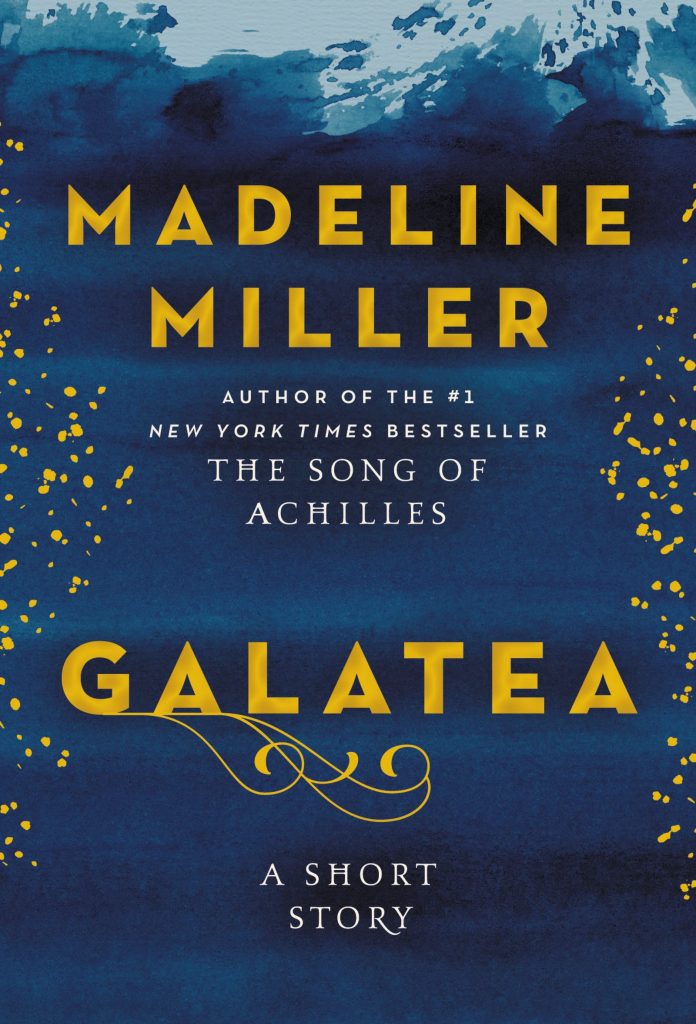Summary and review: Galatea by Madeline Miller

Book Review | Synopsis | Summary | Similar Books | Critics | Excerpt | Buy It
Book review of Galatea
As soon as I finished Galatea, which took less than an hour (even though I wanted to savour it), I walked to my husband’s side of the bed and placed it at the top of the stack of books on his bedside table. This happens often, and is just one of many non-verbal cues that you should really read this next.
In the last few years, I loved reading Circe and The Song of Achilles. Reading Galatea has felt like a Madeline Miller top-up: a welcome reminder of just how much I adore her stunning writing and how I really should re-read her novels.
Like Circe, Galatea is a story focused on transformation, or as Miller explains in the afterword, on “finding freedom for yourself in a word that denies it to you”. Also echoing Circe, and showing one of Miller’s greatest skills, it’s a story that reimagines a classic myth and gives a new, powerful, and defiantly feminist voice to a previously misunderstood character.
Here with Galatea, Miller exchanges the character’s traditional role as an obedient and subversive girl for a woman who’s trapped, controlled, abused, and desperate for freedom.
Despite the growing number of authors trying to replicate her success at reimagining Greek mythology, I find Miller’s gloriously powerful retellings of classic myths to be totally unique.
As is her trademark, Madeline Miller’s writing here is as sun-kissed and brutally striking as the Greek islands she writes about. I adore her themes of beautiful yet destructive nature and women with brooding hidden power.
Reading Galatea has made me even more excited to find out more about Persephone (here’s what we know about Madeline Miller’s next book).
Is Galatea worth reading?
If you’re looking for a beautifully-written retelling of a compelling Greek myth, I’d wholeheartedly recommend Galatea. If you’ve enjoyed Madeline Miller’s previous novels, Circe and The Song of Achilles, you should also absolutely read this story next. But it’s also the perfect book to read first by Madeline Miller.
Galatea is one of the best short stories I’ve read in a long time. Although it’s fast to read, it’s perfectly contained, breathtakingly powerful, and a piece of writing you’ll want to immediately discuss with fellow bookworms.
The gorgeous little hardcover of Galatea is also one of my favourite recommended stocking stuffers and small gifts for book lovers this year. It’s a tiny gem of a book that’s a beautiful addition to any bookshelf.
Synopsis of Galatea (no spoilers)
“Everyone looked at me, because I was the most beautiful woman in the town. I don’t say this to boast, because there is nothing in it to boast of. It was nothing I did myself.”
Madeline Miller, Galatea
First published in 2013, Galatea isn’t actually a new book by Madeline Miller. However, it’s just been published in November 2022 (and earlier this year outside the US) as a beautiful little hardcover that’s just 49 pages long plus a wonderful six-page afterword.
In this short story, Madeline Miller boldly reimagines the myth of Galatea and Pygmalion. As Miller explains in the story’s afterword, it’s a response, “almost solely”, to Ovid’s version of the Pygmalion myth in the Metamorphoses.
Galatea (“she who is milk-white”) is the most beautiful woman her town has ever seen, carved from stone by Pygmalion, a skilled marble sculptor, and blessed with the gift of life by a goddess.
In Ovid’s myth, Galatea does not speak at all and isn’t even given a name – she is only called the woman. She is an object of desire and nothing more. But here in Miller’s short story, she is a real woman with startling courage and a clear and confident voice. Fittingly, Pygmalion isn’t named and is referred to as her husband.
“The term ‘incel’ wasn’t in wide circulation when I wrote this, but Pygmalion is certainly a prototype”, writes Miller in the afterword of Galatea. He demands his wife’s meekness, devotion, beauty, and perfection, even as his own hair thins and belly fattens. He deems all other women to be sluts, expressing horror and disgust for their independence and shamelessness.
It’s a story that is sadly still all too relatable for many women, but, as Miller explains in the afterword, “that is the mark of a good source myth; it is water so wide it can reach across centuries.”
This is a man who desires women but hates them, finding that the only way he can live out his fantasies of purity and control are by carving a woman from stone – which, too, backfires in this story.
Pygmalion expects Galatea to please him with her youthful beauty and humble obedience, but in Madeline Miller’s retelling, Galatea has desires of her own. She yearns for independence – and knows she must break free to rescue her daughter, whatever the cost.
An in-depth summary of Galatea (spoilers!)
What the critics say
Books like Galatea
For more books like Galatea, you can’t go wrong with Madeline Miller’s two bestselling novels, Circe and The Song of Achilles.
You might also like my list of the best books like Circe about nature and mythology.
Book excerpt of Galatea
Read the first pages of Galatea, or see the book on Amazon.
Enjoy more from me
- Retreat into my new book, Your Life in Bloom: Finding Your Path and Your Courage, Grounded in the Wisdom of Nature.
- I'm also the author of Mountain Song: A Journey to Finding Quiet in the Swiss Alps, a book about my time living alone by the mountains.
- If you love books, are feeling a little lost right now, and would love some gentle comfort and guidance, join The Sanctuary, my seven-day course to rebalance your life.

